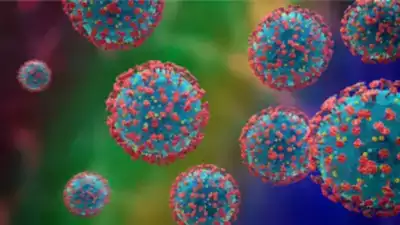Human Metapneumovirus (HMPV) has recently garnered attention due to its increasing prevalence and potential health risks. Understanding this respiratory virus, its symptoms, and how to protect yourself is crucial.
What is HMPV?
HMPV, or Human Metapneumovirus, is a respiratory virus first identified in 2001. It belongs to the same family as RSV (Respiratory Syncytial Virus) and affects people of all ages, especially young children, older adults, and those with weakened immune systems.
How Does HMPV Spread?
The virus spreads through:
- Respiratory droplets when an infected person coughs or sneezes.
- Direct contact with contaminated surfaces or hands.
- Close personal contact like shaking hands or hugging.
Symptoms of HMPV
HMPV symptoms often resemble those of the common cold or flu and may include:
- Cough
- Runny or congested nose
- Sore throat
- Fever
- Shortness of breath
- Fatigue
In severe cases, especially in vulnerable individuals, it can lead to bronchitis or pneumonia.
Who is at Risk?
- Infants and young children
- Elderly individuals
- People with chronic respiratory conditions, such as asthma or COPD
- Immunocompromised individuals
Prevention Measures
To minimize the risk of HMPV infection:
- Practice good hygiene: Wash your hands frequently with soap and water for at least 20 seconds.
- Disinfect surfaces: Regularly clean commonly touched surfaces, like doorknobs and phones.
- Avoid close contact: Steer clear of individuals showing cold or flu-like symptoms.
- Use a mask: Especially in crowded or enclosed spaces.
- Maintain a healthy lifestyle: A balanced diet, regular exercise, and sufficient sleep can boost immunity.
Treatment Options
Currently, there is no specific antiviral treatment for HMPV. Management focuses on relieving symptoms:
- Stay hydrated.
- Use over-the-counter medications for fever and congestion.
- Rest to allow your body to recover.
In severe cases, hospitalization may be necessary for oxygen therapy or other supportive care.
When to See a Doctor
Seek medical attention if you or a loved one experience:
- Difficulty breathing
- Persistent high fever
- Symptoms that worsen or don’t improve after a few days
By staying informed and taking preventive measures, you can protect yourself and your loved ones from HMPV. Always consult a healthcare professional for personalized advice if you suspect an infection.




